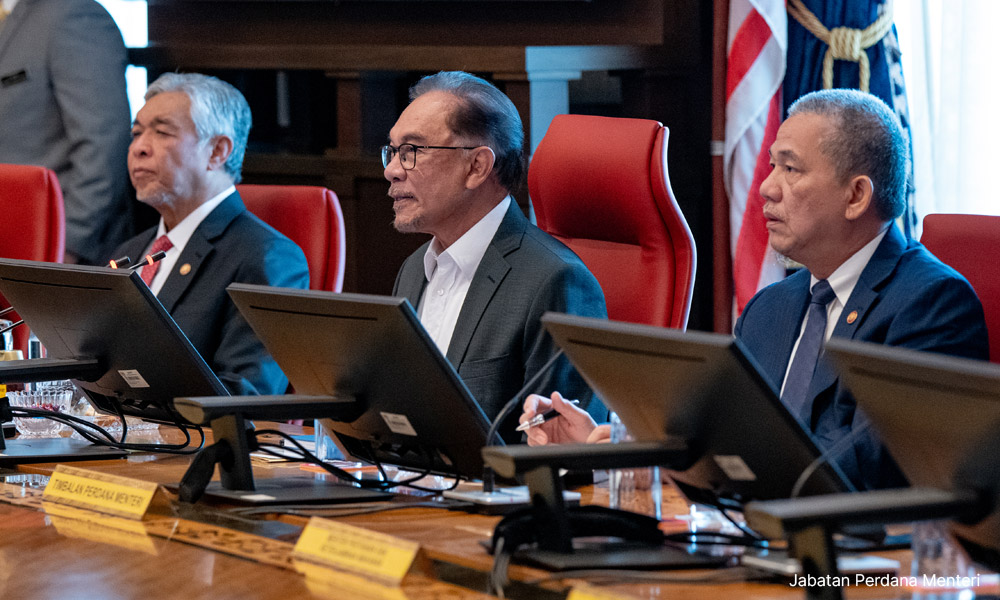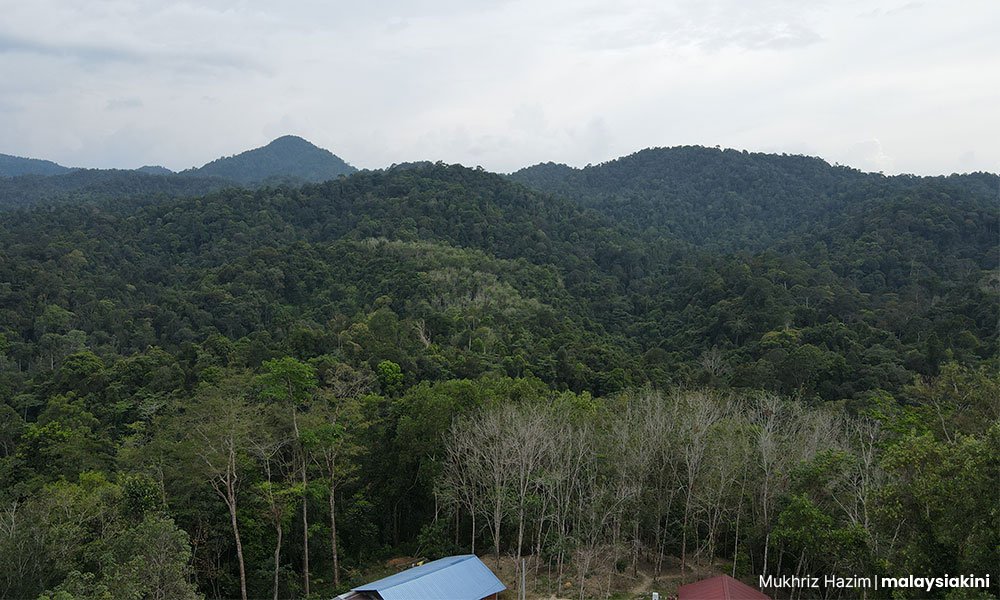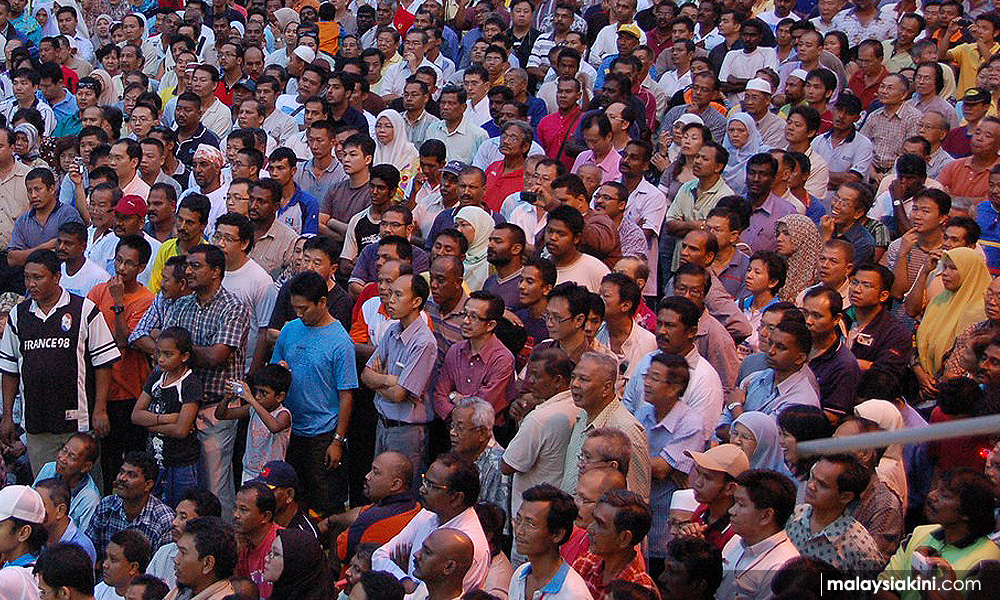When Anwar Ibrahim became prime minister on Nov 24 last year, it was against all odds and expectations at that time. But as unsatisfactory as the coalition that he heads is, Anwar has an opportunity to begin the process of reform this country sorely needs.
It’s now more than two months of what many hope is a five-year or 60-month term - that’s more than three percent of the period he has - and the clock ticks relentlessly. It is time for Anwar to start the process of putting things in order and getting a move on.
Three visits to neighbouring countries in a space of eight weeks hardly inspire confidence that he is focused on the key problems facing Malaysia and gives the impression that he is more interested in cultivating relationships regionally.
But at least, he has got the core problem facing the country right when he identified corruption as the number one issue, correctly naming it as the main threat to Malay survival and the health of the country.
Let’s quote him: “People can harp on the issue of race and religion but, to me, it’s completely irrelevant. It’s an attempt by political leaders to hijack and distract the people from the central issues of governance in this country.
“... Malay survival is being threatened by a corrupt system, a greedy coterie of leaders who have been stealing public funds from this country. We will have to continue to work together to ensure we save the country from endemic corruption,” he said in a speech at the Associated Chinese Chambers of Commerce and Industry of Malaysia (ACCCIM) reception recently.
So, we will put corruption on the top of the list of 10 priorities for Anwar in the next 58 months at best when he will be PM. Others are the economy, education, sustainability, prosperity, innovation and competition, respect, trust, compassion, management and measurement.
The astute reader will note that this includes all six elements of Anwar’s Malaysia Madani concept. Between these and the other four, most of the key areas will be pretty much covered. The list should be short in the interest of focus.
Each of these 10 moves needs to be led by a relevant, competent minister or even by an outsider with strong, proven credentials and a track record of knowledge, competence and achievement. We will examine in greater detail each of them in future articles but for now, we can only outline them in the barest minimalist terms. Let’s begin.

1. Rooting out corruption and patronage
“Rooting” is the right word to use because corruption and patronage are so entrenched in the system it needs to be pulled out by the roots. It is not going to be easy but such a drastic change in a system which is so used to corruption needs very strong people at the top at all levels in and out of government.
Who will they be? And how will it be done? What problems will be faced and how will they cross them? This will be Anwar’s greatest challenge.
2. Fixing the economy
It involves a multitude of simultaneous actions - ensuring reasonable prices, fostering competitiveness, freeing up space for innovation and so on. But there is a ministry already for this specific purpose with a competent person who should spearhead this mission.
It is vital that a small board of economic advisers be set up - no more than 10 with a small secretariat. Then a diversity of views can be obtained, collated and discussed. One of the board members can be the government’s chief economic adviser.
Unfortunately, Anwar is already in a tangle with this when he appointed (pro bono) his daughter Nurul Izzah as an adviser. Fortunately, she is not being paid and perhaps it might be better if she played an unofficial, unpaid role directly to Anwar.
3. A total revamp of education
There is actually a blueprint for this. All it needs is dusting and updating to the relevant requirements by a small group of recognised experts. The education system needs a revamp of teaching, an injection of quality, new teachers, better schools and facilities, an entire rewrite of the syllabus, and a de-emphasis on religion, amongst others.
The current education minister does not inspire much confidence and her credentials don’t seem to be up to mark to undertake such a difficult, delicate and demanding process. She is a first-time minister. Her background is in Islamic law and she does not seem to have any education credentials at all.
4. Preserving the environment and sustainability
This is a difficult one. All state governments from Sabah and Sarawak to Perlis and down to Johor seem set on destroying the environment in return for quick, private gain in deals which may well be related back to our number one problem, corruption. The involvement of people in high places complicates matters.
Only money talks when it comes to the environment. For the proper protection of our natural places and spaces, it looks like federal laws have to be enacted to stop the states from destroying the environment. But as a number of states are now under the unity government, that route must be used to exert pressure as well.

Sustainability also means long-term use of limited resources and paying attention to the impact of development on the environment and livelihoods.
5. Prosperity for all
This means two things - first ensuring that all jobs, in time, pay a decent, living wage. The minimum wage is only a starting point. Employers will resist this with all their might because it will reduce their profits. It also means controlling migrant labour, which disrupts all attempts to ensure a decent wage for Malaysian workers.
Second, it means providing the means for anyone who is interested to get out of their rut by providing opportunities for education and training and chances for equal employment throughout all sectors of the economy. Except for affirmative action, which should be clearly specified, there should be no discrimination anywhere in the workplace - that means both the private sector and the public sector.
Note that the statistics show that out of 15 million employed workers in Malaysia, only 1.7 million are employed in the public sector, including government-linked companies. The private sector employs nearly eight times that of the public sector!
6. Promoting innovation, competition and enterprise
One key way of doing this is to simply reduce bureaucracy. Many innovative attempts to come up with new businesses and processes have met with failure at the door of red tape, and yes, corruption.
The government needs to provide incentives for local businesses and companies to take root and flourish, including funding for deserving enterprises. One business owner I know says he has to pay several layers of government every month so that he is not harassed, which goes back to the issue of corruption.
Innovation can be tied back also to the education system, an example of how these 10 are related to one another.
Bureaucracy also limits and stifles competition, maintaining the dominant position of some companies and considerable inefficiencies. Misguided rules and regulations introduced in the past to promote patronage and produce a class of businesspersons who fund the ruling parties must be dispensed with, forthwith.
Examples include the production of instant billionaires through such things as independent power producers, toll road operators, approved permits for cars and a whole lot of other goods, and ridiculous government contracts, amongst others. Again, they relate back to corruption.
7. Respecting all Malaysians
There are two aspects to this - one where the authorities are guilty and another where the people themselves propagate discrimination and lack of respect for communities other than their own. As Anwar pointed out, politicians are big culprits and corruption is often the root cause.

Thus, every Malaysian must have his place in the sun. Discrimination on any grounds should be taboo (except for affirmative action), and labelling people, eg pendatang, or lazy Malays, infidels, etc, must be disallowed with serious consequences to those who disobey.
It's a long process as attitudes need to be changed. But we can start quickly by targeting bad behaviour.
8. Building trust among the people
Easier said than done and more long-term. The government needs to start first by being responsible, accountable and trustworthy in everything that it does. It should foster peace and amity amongst all people and refrain from using religion and race for political purposes. Royalty should remain well above the fray and the last bastion for upholding people’s rights.
Over time then, it will be possible to get back to a Malaysia that older citizens are familiar with where we fought with one voice for the betterment of the country and all the people in it.
9. Compassion towards everyone
This starts with accepting everyone as our equal, and that includes foreign workers and migrants. It starts with authorities and enforcement agencies understanding that they are there for the benefit of the people and not to beat or oppress them into submission. That means zero tolerance by the government for any oppressive measures.
That also means having more tolerance for those who may be different from us and hold different beliefs and values. So long as they cause no one any harm, they should be left alone to practise what they want. We don’t need people peeping into bedrooms, bathrooms and bushes to try to weed out what they consider to be immorality. Truly, that’s part of compassion.
10. Performance and delivery management
All the previous nine points are so much fluff and castles in the air if we do not have a system to measure performance and delivery. The government must engage with the people, state its objectives, measure achievement at least twice yearly, and report back to the public.
Despite all objections, these can be done. Let's take an example, compassion - one measure may be deaths in lock-ups throughout the country. How many are there yearly? When do we want to reduce it to zero? What reduction per year will this entail? How did we do in the first six months?
Without such numerate targets, all this is meaningless. Let’s see if PM Anwar, the one on whose shoulders rest the hopes and aspirations of the rakyat now, is up to it. Or as in the past, will it be much talk and no action? - Mkini
P GUNASEGARAM, a former editor at online and print news publications and head of equity research is an independent writer, analyst, and consultant.
The views expressed here are those of the author/contributor and do not necessarily represent the views of MMKtT.




No comments:
Post a Comment
Note: Only a member of this blog may post a comment.